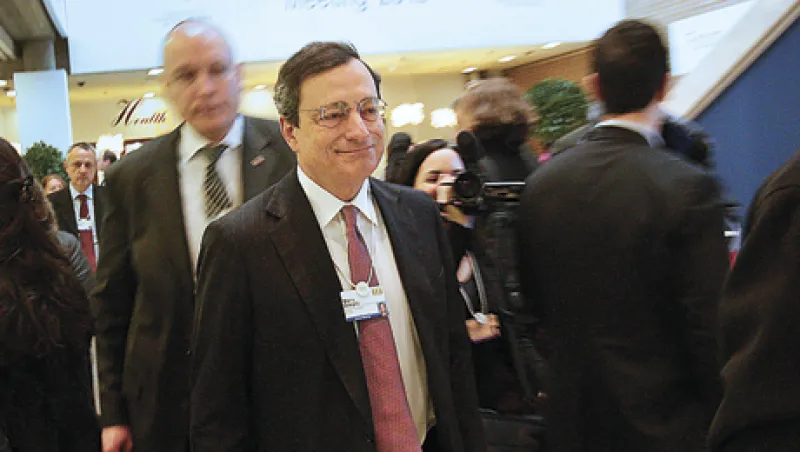
World Economic Forum Struggles with Greece Default Prospects
Members of the Davos elite, including Erdoes, Ackermann and Draghi, were all over the map.
Tom Buerkle
February 8, 2012


